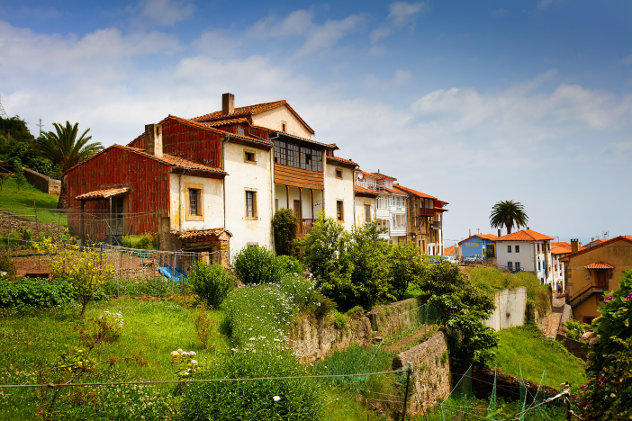Cost allocation in provisional purchase agreement
Housesinspain.com, Friday, 15 June 2018

What does the seller pay and what does the buyer pay? This is how you record that in the provisional purchase agreement.
The provisional purchase agreement for a house in Spain has 3 important points. The down payment, the penalty clause and the distribution of the purchase costs. I have already examined the first 2 points in the 2 previous buyers’ tips.
The text about the distribution of costs on the purchase is the 3rd important point in the Spanish purchase agreement.
This part of the text of the purchase agreement defines which part of the purchase costs the buyer pays and which part the seller pays. This must be recorded in the provisional purchase agreement to prevent subsequent argument.
But even if it is laid down in the provisional purchase agreement, it can still lead to serious discussions or misunderstandings. The reason for this is that provisional purchase agreements are sometimes drawn up by people who do not know enough about them. They simply extract pieces of text from sales contracts that they have seen before and copy them indiscriminately into the provisional sales contracts they draw up. That leads to misunderstandings.
Costs that are clearly for the account of the buyer are the following:
Costs that are clearly for the account of the seller are the following:
The costs for the notary are in a grey area.
This depends on the text included in the provisional purchase agreement.
The most common texts for the cost allocation in the provisional purchase agreement are the following:
A second variant is fine for the buyer. Article 1455 states that the seller pays most of the costs of the notarial deed, and the municipal tax on the increase in value of the land. But the most used and most common is the first variant.
A problem arises when the first and second versions are both mentioned in the agreement, because they each say something different. If nothing is included in the provisional agreement, the costs will be distributed according to the law, as mentioned in 2nd variant.
Signing a provisional purchase agreement soon and you have questions or doubts? Feel free to call or .

What does the seller pay and what does the buyer pay? This is how you record that in the provisional purchase agreement.
The provisional purchase agreement for a house in Spain has 3 important points. The down payment, the penalty clause and the distribution of the purchase costs. I have already examined the first 2 points in the 2 previous buyers’ tips.
The text about the distribution of costs on the purchase is the 3rd important point in the Spanish purchase agreement.
This part of the text of the purchase agreement defines which part of the purchase costs the buyer pays and which part the seller pays. This must be recorded in the provisional purchase agreement to prevent subsequent argument.
But even if it is laid down in the provisional purchase agreement, it can still lead to serious discussions or misunderstandings. The reason for this is that provisional purchase agreements are sometimes drawn up by people who do not know enough about them. They simply extract pieces of text from sales contracts that they have seen before and copy them indiscriminately into the provisional sales contracts they draw up. That leads to misunderstandings.
Costs that are clearly for the account of the buyer are the following:
- With existing construction, the transfer tax. Abbreviated in Spanish ITP
- With new construction, you do not pay transfer tax but VAT. In Spanish IVA
- Also, only in the case of new construction, a tax on notarial documents. Abbreviated in Spanish AJD
- The financial settlement of the deed by an administration office.
- Register of the property in the property register.
Costs that are clearly for the account of the seller are the following:
- The municipal tax on the increase in value of the land.
- The costs for drawing up an energy certificate.
- The costs for applying for proof of habitation.
- Taxes on the profit of the property sold.
The costs for the notary are in a grey area.
This depends on the text included in the provisional purchase agreement.
The most common texts for the cost allocation in the provisional purchase agreement are the following:
- All costs and taxes that arise from the purchase of the property are for the account of the buyer. This is with the exception of the municipal tax on the increase in value of the land (the Plusvalía), which is borne by the seller.
- Naming and referring to an article of law: The costs of the purchase will be distributed according to article 1455 of the Spanish Civil Code.
A second variant is fine for the buyer. Article 1455 states that the seller pays most of the costs of the notarial deed, and the municipal tax on the increase in value of the land. But the most used and most common is the first variant.
A problem arises when the first and second versions are both mentioned in the agreement, because they each say something different. If nothing is included in the provisional agreement, the costs will be distributed according to the law, as mentioned in 2nd variant.
Signing a provisional purchase agreement soon and you have questions or doubts? Feel free to call or .

Spanish property for sale. Appartements, villas and housesfor sale in Spain Costa del Sol, Costa Brava and Costa Blanca. For sale by owner and by agent.
 Explore key insights into navigating square meter discrepancies when buying property in Spain. Our article discusses the critical differences between
gross and net square meters, the risks of misleading real estate adverts, and the complexities of properties with illegal extensions. Learn about the
importance of due diligence, the legal and financial implications of inaccurate property details, and essential tips for a secure and informed Spanish
property purchase.
Explore key insights into navigating square meter discrepancies when buying property in Spain. Our article discusses the critical differences between
gross and net square meters, the risks of misleading real estate adverts, and the complexities of properties with illegal extensions. Learn about the
importance of due diligence, the legal and financial implications of inaccurate property details, and essential tips for a secure and informed Spanish
property purchase. 